IGF-1 LR3 bodybuilding overview
IGF-1 LR3, also known as Insulin-like Growth Factor 1 Long Arginine 3, is a synthetic version of the natural hormone IGF-1. It is commonly used in the bodybuilding world to promote muscle growth and aid in recovery.
IGF-1 LR3 works by increasing the number of muscle cells (myoblasts) and stimulating the growth of existing muscle cells (hypertrophy). It also promotes the formation of new blood vessels, which can improve nutrient delivery and waste removal within the muscle tissue.
The use of IGF-1LR3 can result in significant increases in muscle size and strength. It has also been shown to increase endurance and reduce recovery time after intense workouts. However, like all performance-enhancing drugs, there are risks involved with using IGF-1LR3.
The risk associated with IGF-1LR3 is the potential for an enlarged heart (cardiomegaly). This can result in decreased cardiac performance and an increased risk of heart failure.
Overall, while IGF-1LR3 may provide benefits in terms of muscle growth and recovery, the risks associated with its use outweigh the potential benefits. It is important for individuals to prioritize their health and well-being over short-term gains in performance and aesthetics.
IGF-1 LR3 Mechanism and Usage
Insulin-like Growth Factor-1 (IGF-1) Long R3 (LR3) is a synthetic analogue of IGF-1 that has been modified to increase its effectiveness and prolong its biological activity. IGF-1 is a hormone that plays a critical role in promoting growth and development in humans and animals. It is synthesized in the liver and released into the bloodstream in response to growth hormone (GH) stimulation. IGF-1 exerts its effects on target tissues by binding to the IGF-1 receptor (IGF-1R) on the cell surface, triggering a cascade of intracellular signaling events that promote cell growth and proliferation.
IGF-1 LR3 has been shown to have several potential therapeutic uses, including the treatment of muscle wasting, bone density disorders, and growth hormone deficiency. It is also being investigated for use in improving athletic performance and enhancing muscle mass in bodybuilders and other athletes.
Mechanism of action:
IGF-1 LR3 has a longer half-life than native IGF-1 due to its resistance to degradation by proteases and its reduced binding affinity for the IGF-binding proteins (IGFBPs) that regulate the bioavailability of native IGF-1. This allows IGF-1LR3 to remain active for a longer period and exert a more sustained effect on target tissues.
IGF-1 LR3 also differs from native IGF-1 in its ability to bind to the IGF-1R with greater affinity and specificity, resulting in a more potent biological response. This increased potency is believed to be due to the enhanced activation of downstream signaling pathways, particularly the phosphatidylinositol-3 kinase (PI3K) and mitogen-activated protein kinase (MAPK) pathways, which play critical roles in regulating cell growth, differentiation, and survival.
Therapeutic uses:
- Muscle wasting:
IGF-1 LR3 has been shown to have anabolic effects on skeletal muscle tissue, promoting muscle growth and preventing muscle wasting. It does this by stimulating muscle protein synthesis and inhibiting protein degradation, resulting in a net increase in muscle mass. IGF-1LR3 has been investigated as a potential therapeutic agent for patients with muscle wasting disorders, such as muscular dystrophy and cachexia.
- Bone density disorders:
IGF-1 LR3 has also been shown to have positive effects on bone density and strength. Animal studies have demonstrated that IGF-1LR3 treatment can increase bone mineral density and improve bone microarchitecture, resulting in stronger bones. This makes it a potential treatment option for diseases such as osteoporosis.
- Growth hormone deficiency:
IGF-1LR3 has also been investigated as a treatment option for patients with growth hormone (GH) deficiency, a condition characterized by low levels of GH and IGF-1. Administration of IGF-1LR3 has been shown to increase IGF-1 levels in GH-deficient patients, leading to improvements in growth, body composition, and bone density.
- Athletic performance:
IGF-1 LR3 is also being investigated for its potential to enhance athletic performance, particularly in bodybuilding and other strength sports. Some athletes use IGF-1LR3 as a performance-enhancing drug, claiming that it can promote muscle growth and increase strength. However, there is currently limited scientific evidence to support these claims, and the use of IGF-1LR3 for this purpose is banned by most sports organizations.
IGF-1LR3 is a synthetic analogue of IGF-1 that has been modified to increase its effectiveness and prolong its biological activity. It has several potential therapeutic uses, including the treatment of muscle wasting, bone density disorders, and growth hormone deficiency. It is also being investigated for use in improving athletic performance. While IGF-1LR3 shows promise as a therapeutic agent, more research is needed to fully understand its potential benefits and risks. The use of IGF-1LR3 for non-medical purposes, such as performance enhancement, is not recommended and may have serious health consequences.
IGF-1LR3 bodybuilding benefits
IGF-1LR3 is a peptide hormone that is commonly used by bodybuilders to achieve their bodybuilding goals. It is a long-acting form of insulin-like growth factor, which means that it has a longer half-life than the natural IGF-1 in the body. IGF-1LR3 has many benefits for bodybuilders, including the following:
- Muscle Growth: IGF-1LR3 improves muscle growth by increasing the number of muscle cells, which results in an increase in muscle mass and size. It also enhances muscle recovery after workouts.
- Fat Loss: IGF-1LR3 promotes fat loss by increasing metabolism. It also reduces the storage of fat in the body.
- Bone Health: IGF-1LR3 promotes strong bones by increasing bone density. It also helps to prevent bone fractures and osteoporosis.
- Performance Enhancement: IGF-1LR3 improves athletic performance by increasing strength, power, and endurance. It also reduces muscle fatigue during high-intensity workouts.
- Injury Recovery: IGF-1LR3 promotes injury recovery by stimulating cell growth and repair. It also reduces inflammation and promotes healing.
- Anti-Aging: IGF-1LR3 helps to slow down the aging process by promoting cellular regeneration. It also reduces the appearance of wrinkles and fine lines.
In conclusion, IGF-1LR3 is a highly effective hormone for bodybuilders due to its ability to enhance muscle growth, promote fat loss, and improve athletic performance. However, it should only be used under the supervision of a qualified healthcare professional to avoid any adverse effects.
Is IGF-1LR3 effective for bodybuilding?
Yes, IGF-1LR3 is a peptide hormone, commonly used in bodybuilding and sports enhancement due to its anabolic properties. It works by encouraging the growth and repair of muscles and bones, promoting the production of muscle cells, and reducing the rate of catabolism.
Research shows that IGF-1LR3 can be effective in promoting lean muscle mass gains and increasing strength when combined with proper nutrition and intense training. However, it is essential to note that the hormone may also come with side effects, such as joint pain and insulin resistance, if used incorrectly or in high doses.
Ultimately, the results of using IGF-1LR3 for bodybuilding will depend on several factors, including individual physiology, training routine, and diet. It is crucial to consult with a medical professional or qualified trainer before using any performance-enhancing substance.
How to buy IGF-1 LR3 peptides
Usually we have regular stock products, if you are interested in the product, please contact us for the latest stock list.
We have very safe special transportation line, IGF-1 LR3 Peptides products can be sold to Europe, USA,Canada, Australia and so on.
Our payment method is Bitcoin USDT and BankAccount.








 Miracle Retatrutide: 24.2% weight loss after 48 weeks, expected to reverse fatty liver disease
Miracle Retatrutide: 24.2% weight loss after 48 weeks, expected to reverse fatty liver disease HCG peptide
HCG peptide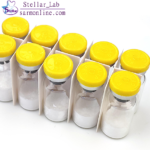 Tirzepatide peptide
Tirzepatide peptide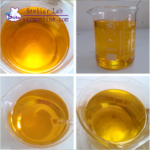 Tri Tren 180 liquid steroids
Tri Tren 180 liquid steroids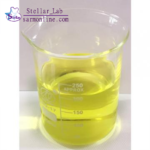 Test Blend 500 liquid steroids
Test Blend 500 liquid steroids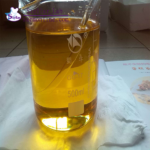 Test 400 liquid steroids
Test 400 liquid steroids BPC-157peptide
BPC-157peptide TB500 Peptide
TB500 Peptide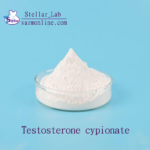 Testosterone cypionate/Depo-Testosterone
Testosterone cypionate/Depo-Testosterone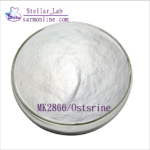 Ostarine MK2866
Ostarine MK2866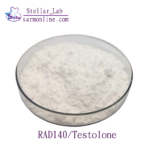 Testolone RAD140
Testolone RAD140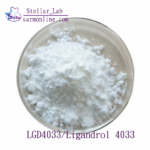 Ligandrol LGD4033
Ligandrol LGD4033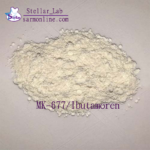 Ibutamoren MK677
Ibutamoren MK677 Thymalin
Thymalin KissPeptin 10
KissPeptin 10 Hexarelin
Hexarelin